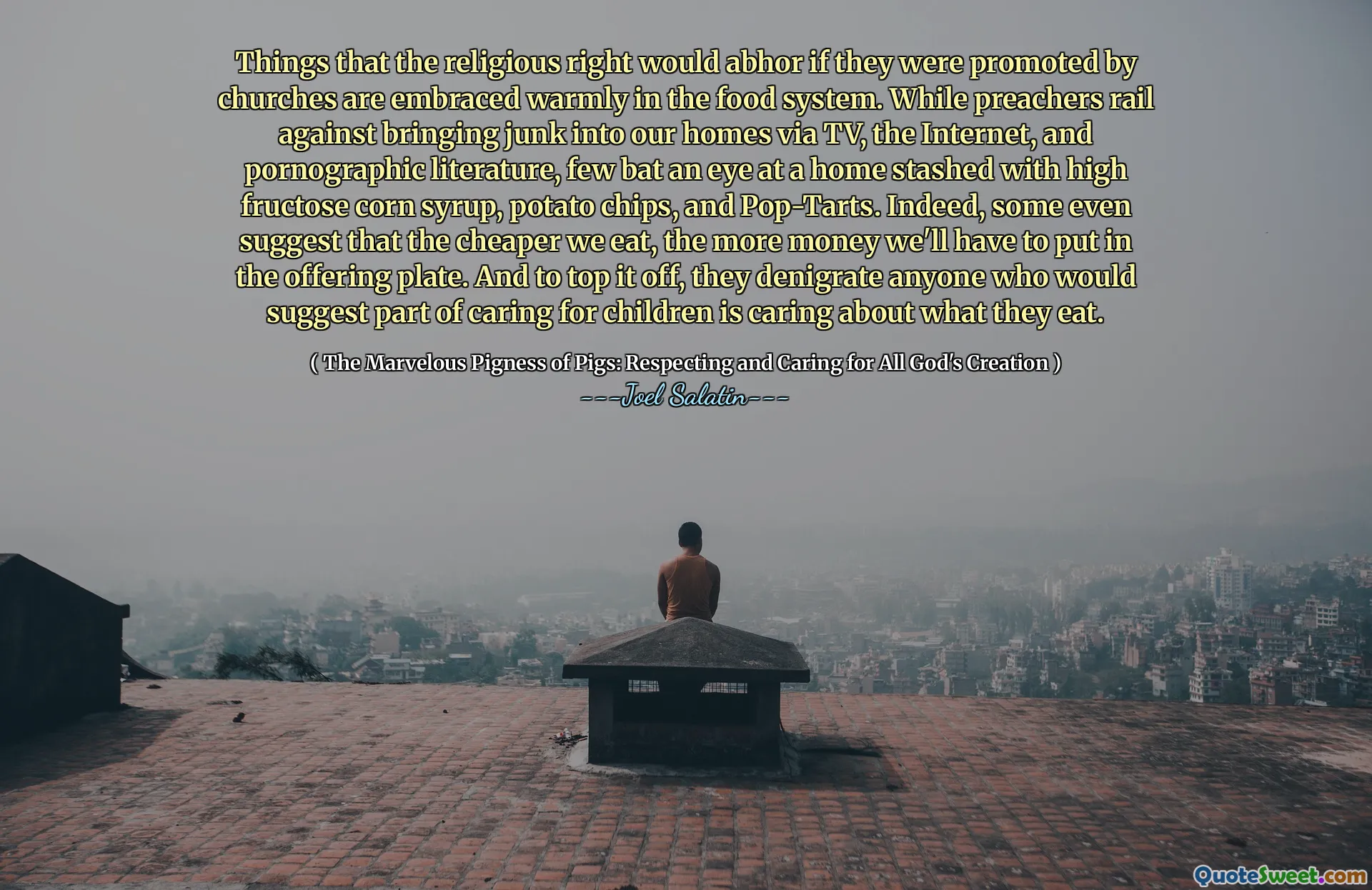
Things that the religious right would abhor if they were promoted by churches are embraced warmly in the food system. While preachers rail against bringing junk into our homes via TV, the Internet, and pornographic literature, few bat an eye at a home stashed with high fructose corn syrup, potato chips, and Pop-Tarts. Indeed, some even suggest that the cheaper we eat, the more money we'll have to put in the offering plate. And to top it off, they denigrate anyone who would suggest part of caring for children is caring about what they eat.
This quote critically highlights the paradox within society and certain religious communities regarding health, morality, and consumption habits. It underscores how societal norms and cultural practices often favor convenience and affordability at the expense of health and well-being. The comparison suggests that while many religious groups vocally oppose certain influences like pornography or violent media, they may overlook or accept within their own environments the promotion of unhealthy foods that contribute to chronic illnesses, especially in children. The mention of high fructose corn syrup, processed snacks, and inexpensive junk food reveals underlying issues of food justice, accessibility, and the commercialization of nutrition. The idea that cheaper foods equate to more disposable income for donations implies a questionable prioritization: economic austerity in diet may be seen as a way to save money, but at what cost? The quote invites reflection on how moral and spiritual values are sometimes conflicting with practical health concerns, especially for vulnerable populations like children. Ultimately, it calls for a broader view of caring—one that includes nourishing the body as a facet of caring for others and oneself, emphasizing that health and morality should not be compartmentalized but integrated in our societal values.







